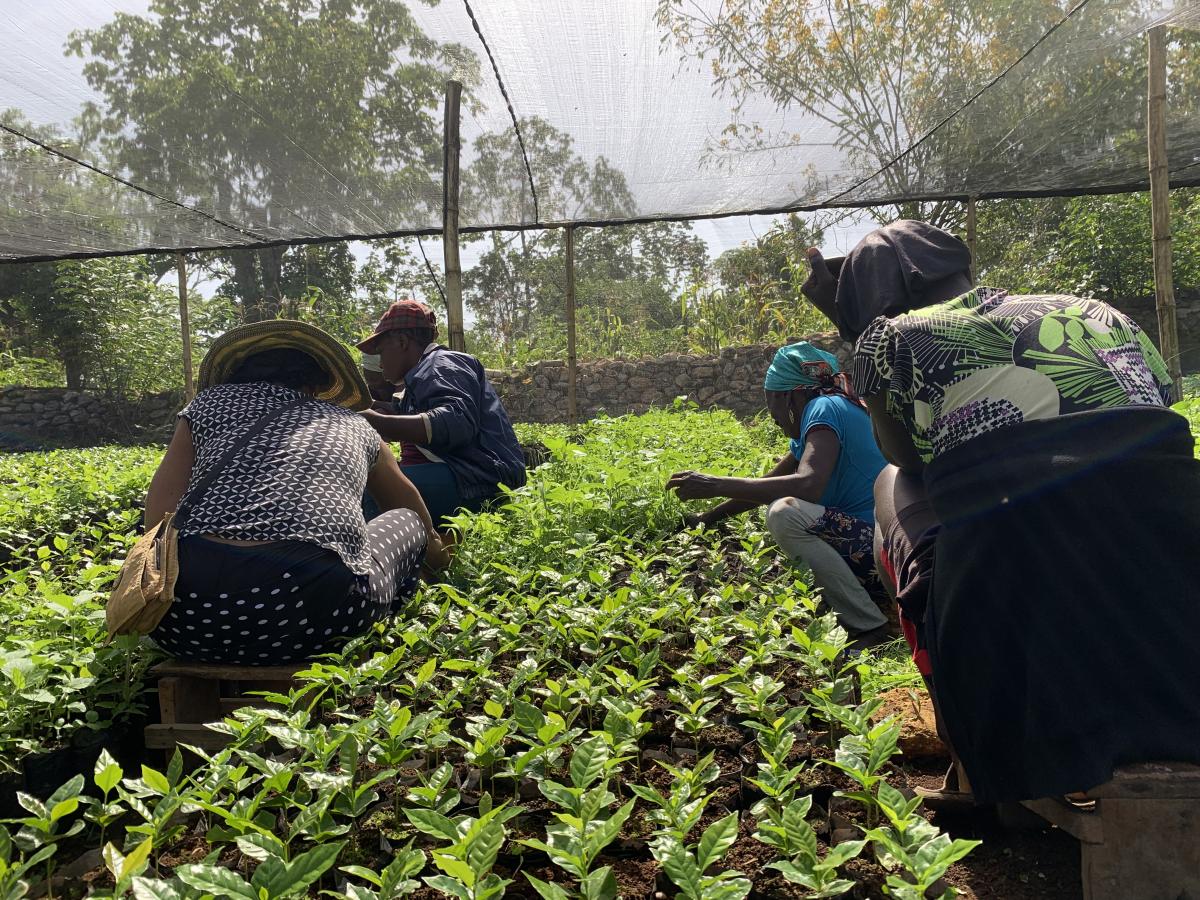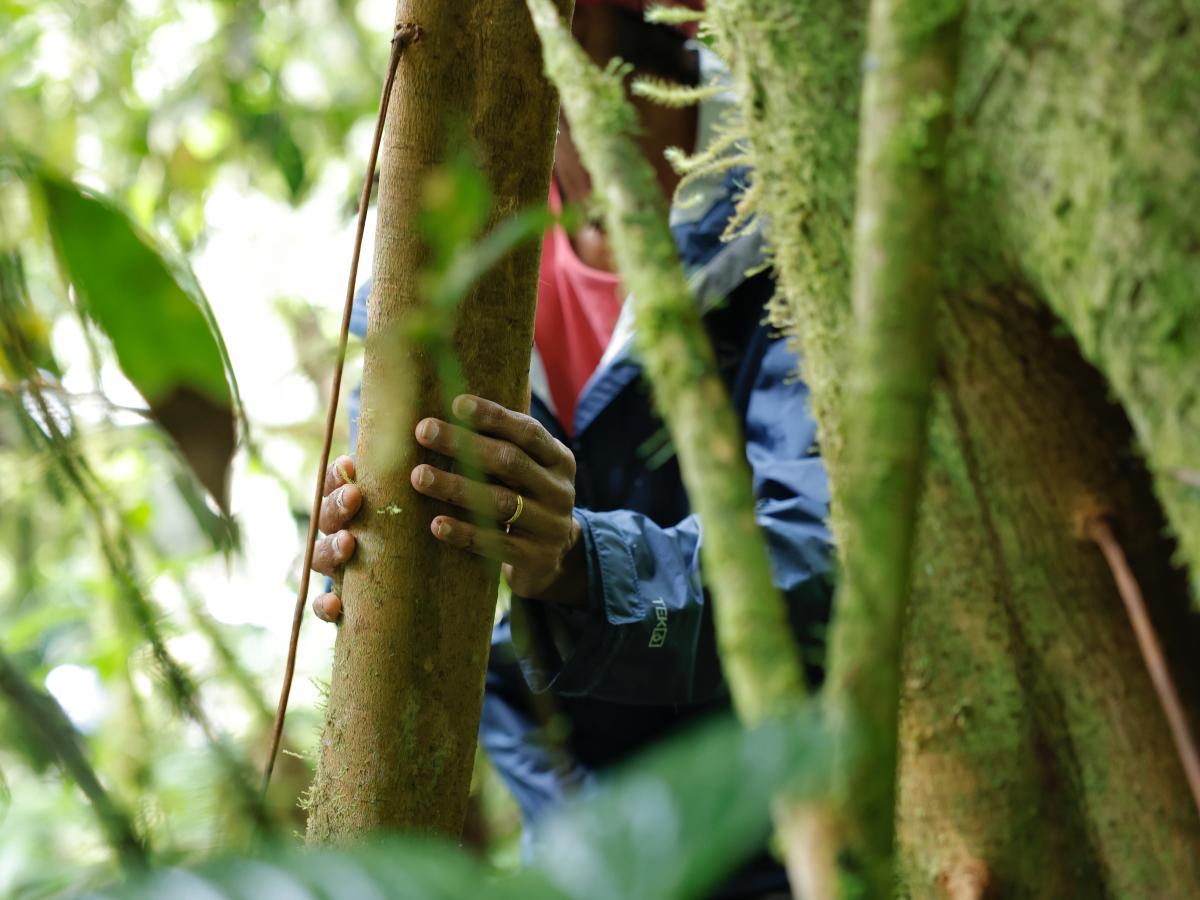USAID empowers local development partners in Latin America and the Caribbean, bringing people from the margins to the center in a way that builds inclusive societies and creates opportunity for everyone.
To see more images featuring USAID LAC’s inclusion work, check out our Flickr page.

Inclusion of Indigenous Communities
Indigenous communities play an invaluable role in the region, and USAID supports their efforts to promote their cultures and to lead in the protection of their environments and natural resources.
Through USAID’s Forest Alliance project, Cacataibo and Shipibo Conibo Indigenous communities in Peru take the lead on conserving and restoring forests under an innovative public-private management model. The results of this project are staggering: over one million tons of carbon dioxide emissions were avoided and over 350 indigenous families came away with improved skills and livelihoods. Watch this video about Eldivia Gonzales, a Shipibo Conibo woman who benefited from USAID's Forest Alliance.
Across Colombia, USAID understands that when conservation work is inclusive, it delivers better results for everyone. That’s why the agency and its partners provide training and technical assistance to help communities and local organizations build biodiversity conservation knowledge and skills to better safeguard Colombia’s environment. One of USAID’s projects in Colombia strengthens the efforts of Indigenous People to recognize their lands as “Territories of Life.”

Inclusion of Youth
Building a stronger future for the region starts with investing in young people - from all communities - today.
Lideni, a young woman in Honduras, received entrepreneurship skills training through the Jovenes Construyendo Futuro project run by the Sembrando Oportunidades initiative - a collaboration between the Mexican Agency for International Development Cooperation (AMEXCID) and USAID . After the training, she advocated for the setup of "La Bodeguita Verde," a start-up for storing and marketing seasonal produce to address food shortages and generate employment for local youth. Lideni is now a crucial partner for USAID as we work to scale up efforts that enable young Hondurans to start businesses and become leaders in their communities.
Like many young people, 21-year-old Billy had planned to leave Haiti for better job opportunities – instead, with seed capital and technical assistance from a USAID-supported Feed the Future Resilience and Agriculture Sector Advancement (HRASA) Activity, he was able to stay in his community and begin planting crops. He worked hard, and after deducting production costs, netted 286,000 gourdes or $2,200 – the highest earnings in his life to date. Billy’s story is a testament to the fact that, provided with the right economic incentives and support network, young people can make a dignified living from agricultural production.
USAID’s Páramos and Forests effort in Colombia aims to establish environmental education programs in local schools that help bring young people into the process of conserving and protecting the country’s unique high-altitude ecosystems, including the Andean páramos and montane forests. By promoting community-based learning and engagement around the issue of climate change, this program encouraged the students to be environmental stewards and participate in conservation efforts.
Also in Colombia, USAID’s Territories of Life project engages Musuiuiai youth to take an active role in preserving their traditional culture and natural resources. Protecting the environment is intrinsic value of the Musuiuiai people, who refer to their territory as Nukanchipa Alpamama, meaning “our mother Earth.”

Inclusion of Women
At USAID we recognize that no country can advance if it leaves half of its population behind, and work to create opportunities for women to enter new industries and positions of leadership.
Irma Rebecca Gonzalez was one of the only female firefighters in Mexico. She was selected by USAID Mexico’s program with the U.S. Forest Service (USFS) to participate in an elite “hotshot” firefighting crew in California and then attend the annual “Women in Fire” seminar in Arizona. Inspired, Rebecca returned home and lobbied for an all-women firefighter training. The local government not only agreed to train 30 aspiring women firefighters, they also committed to hiring 13 of the women to full-time salaried positions.
To help combat the gender disparity in the Dominican Republic’s male-domincated utilities sectors, USAID has partnered with the Dominican Institute of Water and Sewage Systems (INAPA) to counteract stereotypes against women and break down gender divisions among its employees. After INAPA joined USAID’s Engendering Industries Initiative, it launched an office of Gender Equity and developed a strategy to minimize the workplace gender disparity. This effort resulted in a 30 percent increase in women new hires in technical departments and the promotion of 75 women into new leadership roles in 2022.
Indigenous women in Colombia have much to teach and to learn from each other about ceremonial plants like fique, we, and carayurú. In recognizing that crucial community role, USAID supported the first cross-generational gathering of Indigenous women from the Amazon Basin Yapú Zone in July 2022.

Inclusion of People with Disabilities
For development to truly be inclusive, it must make opportunity accessible to everyone, including those with disabilities.
Pablo and Paloma are two individuals with disabilities in Paraguay who have found enhanced skills and career opportunities through the work of Saraki Foundation and USAID.
Blinded at 17, Ganesh Singh faced immense social isolation until his restored independence spurred him to aid others with vision loss. Today he works across sectors in Guyana to advocate for the rights of persons with disabilities, focusing on empowering youth to discover their leadership potential. Through USAID Eastern and Southern Caribbean’s Youth Advocacy, Linkages, Leadership in Elections and Society (Youth ALLIES) program, Ganesh collaborated with young leaders in creating awareness about sexual and reproductive health in schools for disabled children, and spotlighted issues faced by Indigenous youth with disabilities alongside advocates like Rosemarie Ramitt.
For years, sound designer and accessibility consultant Juan Pablo Culasso’s soundscape recordings have provided audiences in Colombia with natural-world auditory experiences of places they may never see. His recent work with USAID’s Natural Wealth Program in Colombia took accessibility to a new level, combining innovation and inclusiveness to create the first birdwatching trail for people with disabilities in South America.

Inclusion of the LGBTQI+ Community
USAID works to support everyone’s ability to live truthfully and to protect the rights of the LGBTQI+ community in the region.
To help spark an honest dialogue about improving inclusivity and acceptance, USAID produced a four-episode series in Honduras on conversations about love, respect, and unity between allies and the LGBTIQ+ community called “No Place for Hate.” One episode is a conversation between a gay man, his father, and his brother; one between two sisters; another one with a friend; and lastly one with a trans woman and her school principal.

